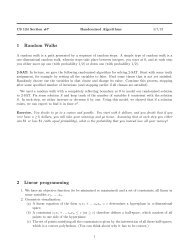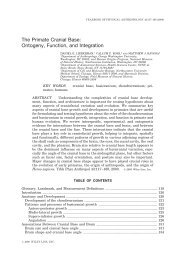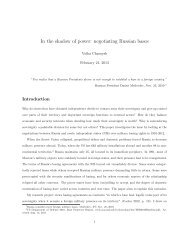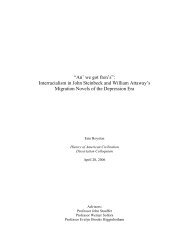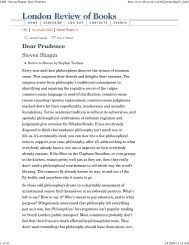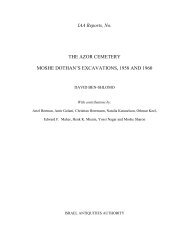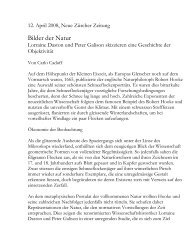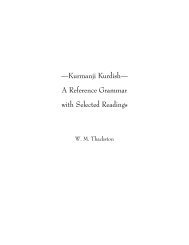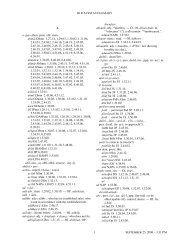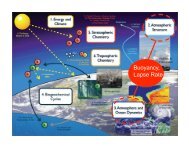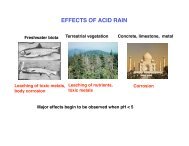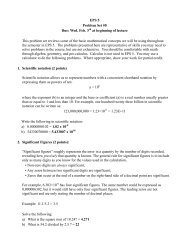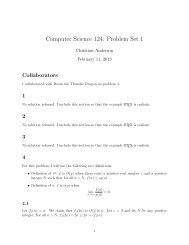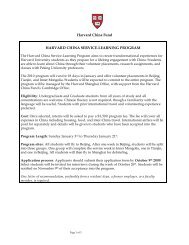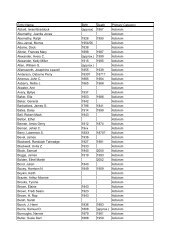—Kurmanji Kurdish— A Reference Grammar with Selected Readings
—Kurmanji Kurdish— A Reference Grammar with Selected Readings
—Kurmanji Kurdish— A Reference Grammar with Selected Readings
Create successful ePaper yourself
Turn your PDF publications into a flip-book with our unique Google optimized e-Paper software.
hand that he never said such a thing? If so, present perfect; if not, simple<br />
past.<br />
Other examples of usage are as follows:<br />
Jiyana min gelekî bi şequdeq bihuriya.<br />
Tenê dê bi kurtî bibêjim: Ez di<br />
Sibata 1953’an de, li Hedhedkê hatime<br />
dinê. Pêşî, min xwendina olî li<br />
cem bavê xwe xwendiye. Îcar piştre ez<br />
derketime feqîtiyê û li hin medreseyên<br />
Kurdistanê geriyame.<br />
My life has been spent mostly in misery<br />
and hardship. I will only say in brief: I<br />
was born in February 1953 in Hedhedik.<br />
First I had religious instruction<br />
<strong>with</strong> my father. Then I became a religious<br />
student and made the rounds of<br />
some schools in Kurdistan.<br />
In this example, the writer’s first verb, bihuriya, is in the simple past tense<br />
as a statement of fact, while English demands the present perfect. Thereafter,<br />
that the writer was born in 1953, studied <strong>with</strong> his father, became a<br />
religious student, etc. are all relevant to his having had a miserable life,<br />
which is the topic at hand. Therefore he uses the present perfect tense.<br />
Diya min li wir bûye û meriyên wê îroj<br />
li her du hêlên xeta hesin bi cîh dibin.<br />
THE VERB<br />
My mother was from there, and today<br />
her people live on both sides of the<br />
“Iron Line.” 1<br />
In this example the writer says literally, “my mother has been from there”<br />
because the fact that his mother was from there explains why he has relatives<br />
on both sides of the border.<br />
§ 21. The Past Perfect Tense (Intransitive). For intransitive verbs <strong>with</strong><br />
past stems ending in a consonant, the past perfect tense, which is functionally<br />
equivalent to the English past perfect (‘I had come, you had gone’), is<br />
formed from the past stem + i + the past tense of bûn ‘to be.’ Verbs <strong>with</strong><br />
past stems ending in a vowel form the past perfect tense from the simple<br />
stem + the past tense of bûn. Some writers shorten a final î in the stem to i<br />
(i.e. ez tersibûm ‘I had feared’ for ez tersîbûm). Examples of conjugation<br />
are from hatin and çûn.<br />
ez hatibûm em hatibûn ez çûbûm em çûbûn<br />
1 The “Iron Line,” coined on the model of the “Iron Curtain,” is Turkey’s border<br />
<strong>with</strong> Syria and Iraq, which divides Kurdistan.<br />
55



